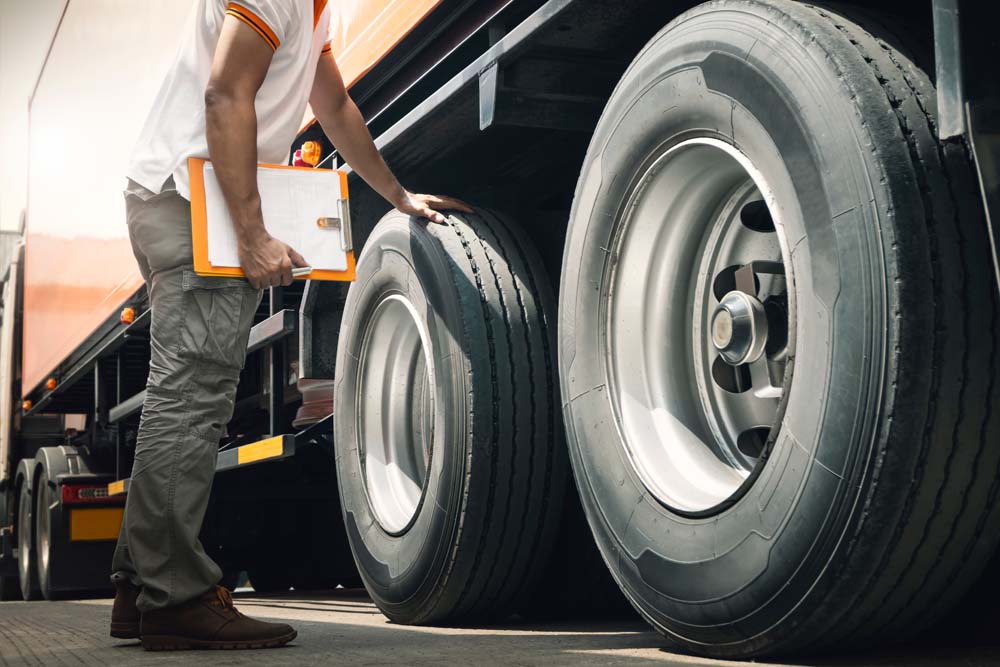Maintenance Provision Rating Scheme for Commercial Vehicle Workshops is Launched
One of the key tenants of running a commercial vehicle operation, whether it is ‘HGV’ or ‘PSV’ is that the maintenance of the vehicles is paramount. For some operators this will mean having their own maintenance facilities and teams to look after their fleet of vehicles in house, but the majority of operators in the UK are reliant on 3rd party maintenance providers for some, if not all of the vehicle maintenance.
That can sometimes give operators a problem. To some extent they have to take on trust that the 3rd party undertaking the work to the vehicles is doing the job to the correct standard and not cutting any corners in circumstances where it is more difficult to implement ‘checks or balances’ to ensure that what the operator has been told in terms of safety inspections and repairs is what has happened. Many vehicle operators have fallen foul of this. If there is a problem with a vehicle and the maintenance provision is found to be wanting the buck stops with the operator. If the operator wants recourse for any costs or damages involved with the problem from the 3rd party maintenance provider they must deal directly with them, but shortcomings on the part of the maintenance provider do not absolve the operator of responsibility.
The launch of this new rating scheme for maintenance workshops aims to address the issue by giving operators peace of mind; a form of accreditation being a substitute for regulation
Maintenance Provision Rating Scheme (MPTS) Launched:
During 2024 this multi-agency scheme, which is supported by the DVSA and the Department for Transport and crucially the Office of the Traffic Commissioner, was trialed successfully. The institute of Road Transport Engineers (IRTE) has taken on the ongoing implementation and management of the scheme. It is aimed at maintenance workshops and facilities of all sizes and has a single rating scheme that gauges facilities and workforce quality through comprehensive audits and “collective evidence”. The MPRS website states that the aim is to shine “[a] spotlight on improving current standards across workshops and maintenance facilities across the nation, highlighting non-compliant and unsafe practices that compromise safety and standards within the commercial industry”.
Neil Barlow of the DVSA concurs with this message in his DVSA Blog, stating “We’re fully behind the initiative as it aligns with our mission to improve industry standards and reduce the number of unsafe vehicles on the road. By supporting the scheme we hope to enhance road safety and promote best practice”.
How will the MPRS Work?
The hope is that maintenance workshops and facilities will take up membership of the MPRS to show their commitment to road safety and demonstrate “their competency, compliance and credibility” in the vehicle maintenance industry.
Once a workshop has applied to be included in the scheme they are graded from “Qualified”, which means that they can provide essential maintenance and repair services, through “Bronze”, “Silver” and “Gold” to the top grading of “Platinum” which is for workshops that have the most advanced facilities with the highest levels of staff qualifications and full compliance with the latest industry standards.
Application is via the MPRS website, which has an easy to use “quick quiz” to guide workshops as to which level of grading they would currently qualify for. The website also has assessment criteria guides so that owners of workshops can see what level they should be aiming for.
There are currently no fees involved with signing up to the scheme. The funds that are needed to run the scheme are coming from a collaboration of 11 organisations. As stated, the IRTE is managing the role out, but the scheme is supported by;
- Logistics UK
- Road Haulage Association
- CPT
- Society of Motor Manufacturers & Traders
- British Vehicle Rental & Leasing Association
- National Franchised Dealers Association
- Office of the Traffic Commissioner
- DVSA, and
- The Department of Transport.
Peace of Mind for Operators?
The scheme certainly has the potential to give commercial vehicle operators confidence that the maintenance workshop that they are using is “up to standard” and gives the operator more peace of mind that the work they are paying for is being done correctly and that their vehicles are being maintained safely. This is especially useful for smaller operators who may not have the necessary technical knowledge to know what questions to ask and what to look out for.
Unsurprisingly, use of an MPR Scheme Maintenance Provider does not remove the ultimate responsibility for the roadworthiness of the vehicles from the operator and should not be seen by operators as a ‘get out of jail’ card. The Office of the Traffic Commissioner has previously commented on the use of third-party maintenance providers stating that operators must do the due diligence on their capabilities before signing any contract. That message still stands.
The MPRS if properly run and supported should allow operators to have some assurance that they have contracted with a verified service by experts in the vehicle maintenance field and therefore have a good degree of confidence that the service provider is serious about safety standards and are subject to checks and oversight.
Overall, the industry seems to agree that this is a good idea and a big step forward towards making the UK’s road safer for all users.
If you would like any help or advice regarding your commercial vehicle operation, including its maintenance provision then give us a call now on 01279 818280 or click here to send us an email. We are here to help.
© Richard Pelly, April 2025

Latest Coach & Bus Industry News and Insight

DVLA Confirms New Rules for Professional Drivers Living with Diabetes
From Friday 7th November 2025 the rules were changed to allow diabetic drivers of PSV’s and HGV’s to monitor their glucose levels using Continuous Glucose Monitoring Systems….

The Senior Traffic Commissioner’s Statutory Guidance
The value of The Statutory Guidance Documents and the importance to operators, nominated transport managers and other professionals involved in the operation and driving of large commercial vehicles cannot be overstated…

Walkaround Checks – Where Road Safety Starts
Every day, often before the sun is above the horizon, hundreds of thousands of commercial vehicles are started up by their drivers and then they head out on to the UK’s road network to transport goods or passengers from one point to another, often with demanding time constraints thrown into the mix…

Traffic Commissioner’s Annual Report 2024/25: “Don’t Look Back in Anger”
Time has flown by and once again we find that the schools are back after the long summer break and the Office of the Traffic Commissioner has issued its annual report to the Secretary of State, providing a review of the year…

An Apple a Day to Keep the DVLA Away – A review of the DVLA’s Rules on Health Checks for Professional Drivers
There has been some discussion in the industry trade press recently that has highlighted proposed changes to how the disease of diabetes is monitored in professional drivers by the DVLA. One article in RouteOne Magazine stated that…

Revisiting the DVSA’s Guide to Maintaining Roadworthiness
In April 2025 the Driver & Vehicle Standards Agency (DVSA) issued the latest edition of its Guide to Maintaining Roadworthiness.

The Wheels on the Bus go Round & Round….but how do they Stop?
At the tail end of 2024 a Public Inquiry was held in front of Traffic Commissioner Kevin Rooney where the subject of brake maintenance practices was called into question…

Maintenance Provision Rating Scheme for Commercial Vehicle Workshops is Launched
One of the key tenants of running a commercial vehicle operation, whether ‘HGV’ or ‘PSV’ is that the maintenance of the vehicles is paramount. For some operators this will mean having their own maintenance facilities and teams to look after their fleet of vehicles in house, but the majority of operators in the UK are reliant on 3rd Party maintenance providers…

New Rules for Vehicle Operators and Drivers Carrying Out International Journeys
The Department for Transport and the Driver and Vehicle Standards Agency recently issued a bulletin regarding the new rules that vehicle operators and their drivers will have to comply with if travelling on international journeys…

Road Haulage Association Members and DVSA Leadership Work Shadow Each Other!
To help highlight the Road Haulage Association’s “National Lorry Week” which this year was between 4th and 8th November 2024, the Road Haulage Association and the DVSA’s Leadership team decided to spend some time work shadowing each other….

2024 Update to Guide to Maintaining Roadworthiness (GTMR)
The Guide to Maintaining Roadworthiness is the Driver & Vehicle Standard Agency’s (DVSA) standard produced in collaboration with key industry stake holders which explains the responsibilities and systems involved in maintaining vehicles in a roadworthy….

New Driver CPC Reforms to be in Force from 3rd December 2024
Following a very lengthy consultation period on this matter launched in early 2023, Parliament finally debated the “Vehicle Drivers (Certificates of Professional Competence) (Amendment) Regulations 2024” on Tuesday 29th October 2024…
